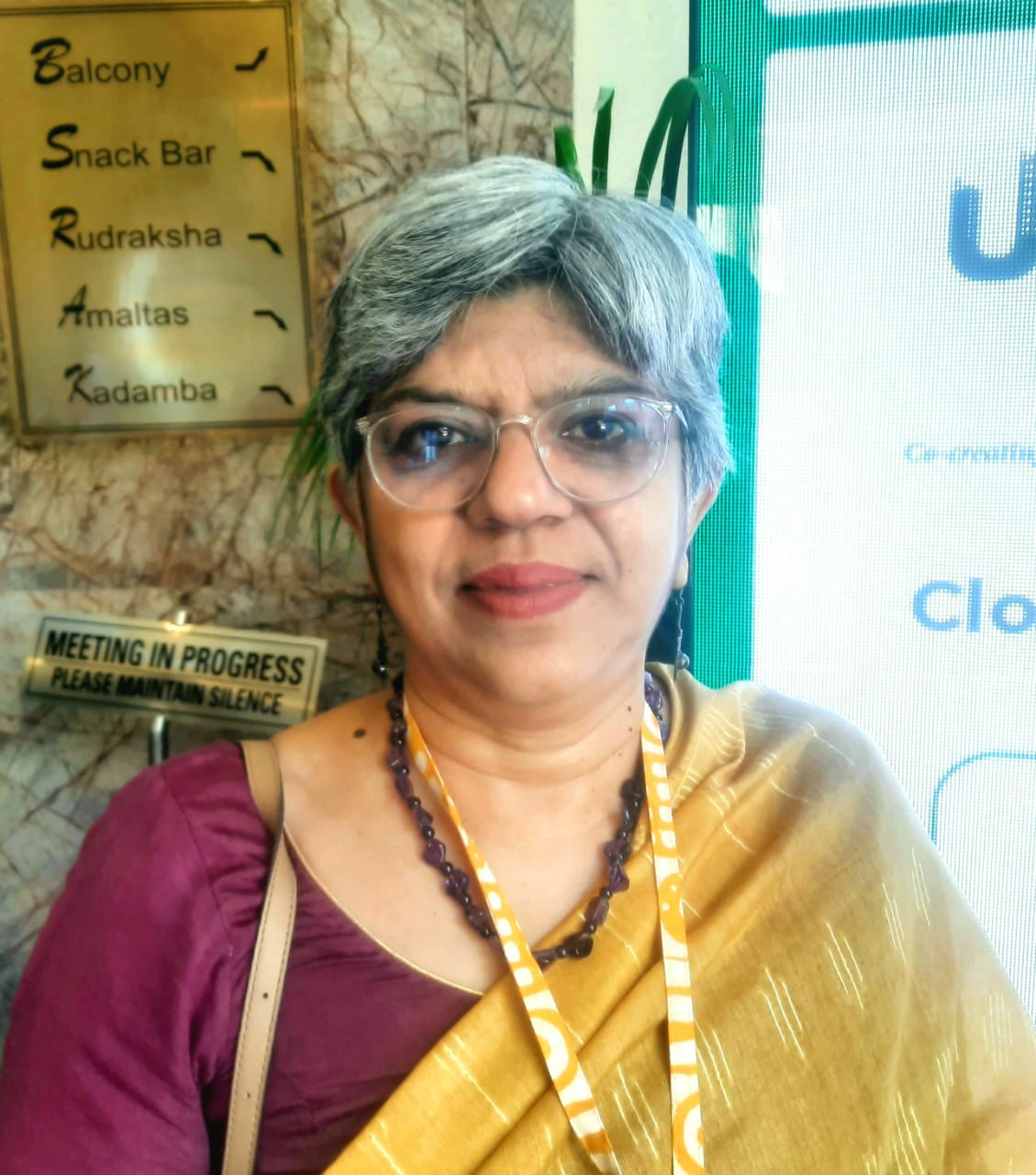Dr. Monica Kennedy, the Head of Austrade or the Australian Trade and Investment Commission for South Asia, steers trade and investment in the region. With over 20 years of leadership experience in the education sector, she has played a pivotal role in establishing Australia as a preferred education partner in the region. She has driven the international education strategy of Austrade and led multiple key initiatives for the Australian government, including the India Digital Education Hub, Future Skills Initiative, Australia India Business Exchange (AIBX), and the Australia India Innovation Network. Under her leadership, Austrade has facilitated over A$1 billion in commercial transactions through the AIBX Partnering for Prosperity program, empowering more than 1,500 Australian businesses to engage with India.
Dr. Kennedy aims to expand Australia’s presence in South Asia by focusing on renewable energy, elite education, and premium food and wine sectors, while also strengthening relationships with Bangladesh and Sri Lanka. Her career spans both private and public sectors across India, China, Vietnam, Singapore, and beyond, with key roles at Swinburne University, Study Group Australia, and others. An accomplished academic, her research on organizational learning and international education has been widely published in international journals, books, and conferences. Her blend of commercial insight and academic expertise also uniquely positions her to drive the growth of Austrade in South Asia.
In an exclusive conversation with The Interview World, Dr. Kennedy discusses the state of trade and investment relations between India and Australia. She details the efforts of Austrade to promote bilateral trade, highlights opportunities for Indian startups and SMEs in innovation and technology, and identifies key areas for collaboration between the two countries in sustainability and green technology. She also shares insights on future trends in trade and investment. Here are the key takeaways from her compelling interview.
Q: Can you provide an overview of the current state of trade and investment relations between India and Australia?
A: The relationship between our two countries has never been stronger, with economic ties flourishing like never before. India is Australia’s fifth-largest trading partner, with two-way trade in goods and services reaching AUD 48.9 billion in 2023. Our trade relationship is fundamentally driven by a deep complementarity: Australia offers what India needs, and India provides what Australia requires. Key drivers of this trade include metals, energy, resources, students, and tourists.
The Australia-India Economic Cooperation and Trade Agreement (ECTA) has been a critical catalyst for this growth. In the first half of this year alone, India’s agricultural exports to Australia rose by 58%, apparel exports increased by 42%, and iron and steel exports jumped by 32%. As a result, Australians are consuming more Indian rice, grains, and fruits, wearing more Indian-made textiles, and incorporating more Indian industrial inputs into their manufacturing processes. Meanwhile, Australian exports to India have also surged: exports of metallic ores are up 99%, wood and paper products have increased by 214%, and copper exports have soared by 159%, to name a few.
Q: What initiatives is the Australian Trade and Investment Commission undertaking to promote bilateral trade and investment?
A: Austrade, the Australian Trade and Investment Commission, serves as the Australian Government’s international agency for trade promotion, investment, and visitor attraction. We maintain a robust presence in South Asia, spanning eight cities in India, Sri Lanka, and Bangladesh, with over 70 dedicated staff members. Through our Australia South Asia Business Exchange program, we strive to enhance two-way trade between Australia and South Asia, focusing on key priority sectors.
Furthermore, our initiatives encompass activities, including targeted trade delegations, business awareness programs, and marketing campaigns to showcase Australian goods and services in the region. We facilitate strategic connections between Australian and South Asian companies, fostering trade opportunities and supporting South Asian businesses in making productive foreign direct investments in Australia. Looking ahead, numerous promising sectors for Australian trade and investment are emerging over the next five years. In South Asia, Austrade spearheads business engagement across diverse areas, such as agrifood, education and skills, the green economy, critical and enabling technology, and defence capabilities.
Q: What opportunities does Australia offer for Indian startups and SMEs, particularly in technology and innovation?
A: Australia stands as a powerful magnet for tech developers, fueled by a collaborative environment where scholars and entrepreneurs innovate together. Our trailblazing innovators have harnessed blockchain to revolutionize the financial services sector, pioneered immersive simulation in education, transformed medical procedures with cutting-edge robotics, and modernized agriculture through advanced Internet of Things (IoT) solutions. Today, Australia is recognized globally as a leader in silicon-based quantum computing research. This relentless pursuit of technological advancement attracts investors and entrepreneurs from across the globe.
Australia is not only a dependable trade partner but also a premier destination for investment. Our nation is safe, prosperous, and brimming with talent. Moreover, our dynamic economy invites investment from multinational corporations, startups, and research organizations worldwide. Positioned as a natural gateway for global trade, Australia boasts an open economy with unmatched access to the thriving Asia-Pacific markets.
Q: What are the key areas of collaboration between India and Australia in the field of sustainable development and green technology?
A: Australia stands as a natural leader in the materials and technologies essential for advancing renewable energy. Renowned globally for our high-quality goods and services, we leverage abundant natural resources, uphold sustainable business practices, and foster world-class research and innovation. We are also channeling substantial investments into priority sectors under the “Future Made in Australia” plan.
These strategic advantages position Australia as a partner of choice in a low-carbon, resource-efficient, and socially responsible global economy. We offer solutions to reduce greenhouse gas emissions, drive sustainable economic growth, and prepare the workforce for the future demands of the global green economy.
Q: Are there specific regions or industries in Australia where Indian investment is particularly encouraged?
A: Australia ranks as a premier destination for renewable energy investment, consistently attracting global attention. In 2023, we were the world’s fifth most attractive destination for renewable energy investment, driven by factors such as robust energy demand, stable policy frameworks, project reliability, and diverse natural resources.
We are also a secure and dependable source for minerals, underpinned by abundant reserves and a cutting-edge mining sector. Australia holds the largest reserves of iron ore, including magnetite and high-grade hematite, both of which are critical for green steel production. As the world’s top producer of lithium, we cater to the surging global demand driven by the rise of lithium batteries.
Additionally, Australia possesses the world’s largest reserves of zinc and nickel, and is rapidly becoming a major supplier of multiple rare earth minerals. With approximately 80% of our land still unexplored, Australia presents substantial opportunities for new mineral discoveries, reinforcing its status as a compelling investment destination.
Q: What future trends or opportunities do you foresee in the trade and investment relationship between India and Australia?
A: Free and open trade forms the foundation of Australia’s economic success. It generates employment, with recent statistics revealing that one in every four jobs in Australia is linked to trade. Australia has consistently championed regional integration, aiming to expand and diversify its trade partnerships across the Indo-Pacific, with India playing a pivotal role. To elevate our economic ties with India, the Comprehensive Economic Cooperation Agreement (CECA) offers a clear pathway. Currently under negotiation, CECA has the potential to position Australia and India at the core of renewable energy supply chains, foster two-way investments, and deepen our people-to-people connections.










1 Comment
Usually I do not read article on blogs however I would like to say that this writeup very compelled me to take a look at and do so Your writing taste has been amazed me Thanks quite nice post
Comments are closed.